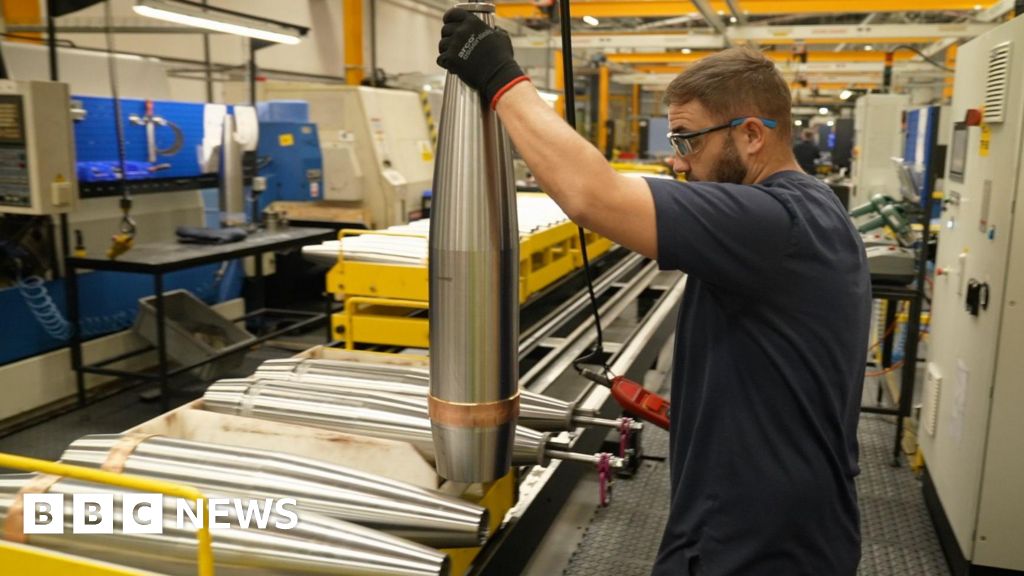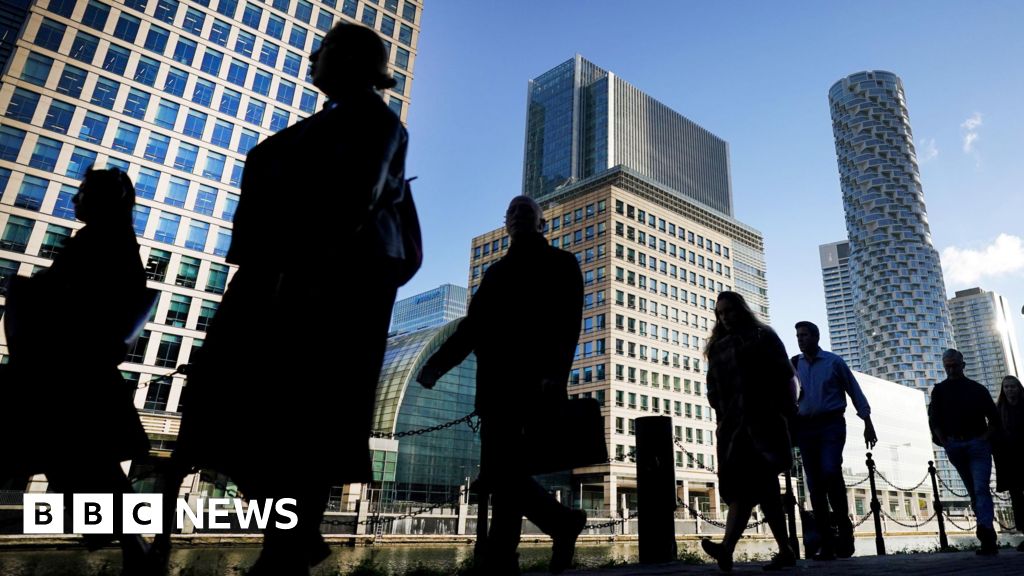ARTICLE AD BOX
By Beth Timmins
Business reporter, BBC News
image source, Getty Images
image captionKPMG has 7,300 London staff based at its office in Canary Wharf.Accounting giant KPMG has become one of the first large UK businesses to set a target for the number of employees from working class backgrounds.
KPMG has defined working class as having parents with "routine and manual" jobs, such as drivers, cleaners and farm workers.
It wants 29% of its partners and directors to come from working class backgrounds by 2030.
That compares with 23% of partners and 20% of directors at the moment.
KMPG said that these employees were paid 8.6% less than those from the other socio-economic groups.
According to data from the Social Mobility Commission, the national benchmark is that 39% of the UK workforce aged 16 plus are working class.
The Labour Force survey also showed that 24% were "intermediate", defined as having parents with jobs such as secretaries, call centre agents and nursery nurses. The remaining 37% had "professional backgrounds" with parents working as teachers, finance managers, software designers and accountants.
KPMG said that while its senior and junior colleagues were its most socio-economically diverse employees, working class representation in middle management grades was comparatively lower and this was contributing to the pay gaps.
The company will also train its 16,000 employees to understand the issue of socio-economic background and to recognise "invisible barriers" to progression.
KPMG chair Bina Mehta said she was from a working-class background and was a "passionate believer that greater diversity improves business performance".
"Diversity brings fresh thinking and different perspectives to decision-making, which in turn delivers better outcomes for our clients," she added.
Ms Metha was appointed to the role this year after the resignation of the company's former chairman, Bill Michael. During a company-wide Zoom call, he said there was "no such thing as unconscious bias".
In anonymous comments on the Zoom call workers complained and one wrote: "There's no such thing as unconscious bias?! Are you joking? Please do your research before just making such statements. Check your privilege."
Along with the other "big four" accountancy firms PwC, Deloitte and EY, KPMG offers unconscious bias training for its staff. It is designed to increase awareness about race, sex, sexuality or disability prejudices and patterns of discrimination in the workplace.
Nick Miller, chief executive of non-profit consultancy the Bridge Group, said: "In publishing pay gaps by socio-economic background for the first time, and using this to inform a strategy for change, KPMG is leading the way."
Sarah Atkinson, chief executive of the Social Mobility Foundation, told the BBC: "Social mobility is a vital aspect of the diversity agenda and we are delighted that such a high-profile employer is taking strong action."
image source, Getty Images
Analysts project that social mobility will worsen as a result of the pandemic and 600,000 more children are now living in relative poverty, compared with 2012.
Half of adults from the poorest backgrounds receive no training at all after leaving school and even in a professional role, they earn 17% less, on average, than more privileged colleagues, according to a 2020 report by the Social Mobility Commission.
The commission found people who come from a privileged rather than a working-class background are 60% more likely to be in a professional job.
The same report found that where a person comes from is also decisive in what professional opportunities they have. Young people are twice as likely to go to university if they are from a social mobility "hot spot" (27%), compared with those from remote rural or former industrial areas (14%) across the UK.
However, more people from working class families are now in professional jobs, with the percentage having increased to 39% in 2020 compared with 33% in 2014.
The UK ranks 21st on a global social mobility index, well behind most European countries. It has a high score on access to education, but Dame Martina Milburn, chief executive of the Prince's Trust charity group, said the UK "does poorly on labour market policies to help the unemployed and on fair wages".

 3 years ago
59
3 years ago
59








 English (US) ·
English (US) ·